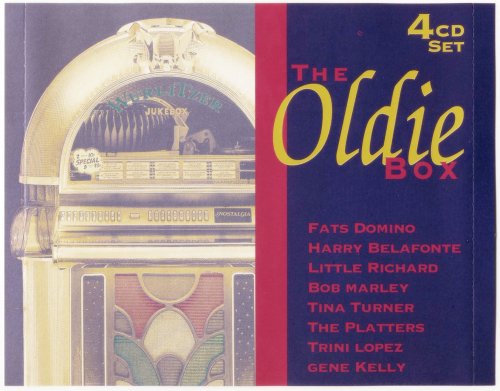Shake Stew - Heat (2022) [Hi-Res]

Artist: Shake Stew
Title: Heat
Year Of Release: 2022
Label: Traumton
Genre: Jazz
Quality: FLAC (tracks) / 24bit-44.1kHz FLAC (tracks)
Total Time: 69:02
Total Size: 401 / 750 MB
WebSite: Album Preview
Tracklist:Title: Heat
Year Of Release: 2022
Label: Traumton
Genre: Jazz
Quality: FLAC (tracks) / 24bit-44.1kHz FLAC (tracks)
Total Time: 69:02
Total Size: 401 / 750 MB
WebSite: Album Preview
1. Unmight (6:57)
2. I Am the Bad Wolf (6:59)
3. I Am the Bad Wolf (Outro) (5:11)
4. I Wear My Heart on the Outside (6:45)
5. Heat (Intro) (1:58)
6. Heat (9:28)
7. Lucidity (12:11)
8. Wake Up and Be Gone (5:03)
9. Oh Captain, My Captain! (Intro) (2:26)
10. Oh Captain, My Captain! (12:09)
Heat is the fifth album since Shake Stew's formation in 2016 and delivers probably the most diverse overall impression of their musical range to date. For the first time in the band's history, there was a personnel change in the horn section at the beginning of 2021, where the Austrian alto saxophonist Astrid Wiesinger took over the position from Clemens Salesny. The addition of Wiesinger has given the band an injection of new energy and we can hear the electricity buzzing on each track.
Its genesis also reflects a decisive characteristic that has accompanied the band from the beginning: since the first note played together, the septet's music has been forging its way, unceasingly bringing forth new facets - no matter how adverse the circumstances. As Heat's seven compositions took on more and more concrete form towards the end of 2020, it quickly became clear that this music had to be recorded as soon as possible and sent out into the world. At the same time society was moving from one lockdown to the next and rehearsals between the partly Austrian and partly German musicians* could only be realised under difficult conditions. Therefore, the decision was made that a large-scale project was needed to get the band out of the daily routine of the pandemic and into an environment where they could fully ignite the fire that had arisen in the new line-up and capture it on record. The Cicaleto Studio in Arezzo (Tuscany, Italy) was chosen as perfect location and with great logistical effort (travelling up to 18 hours by various trains to keep the ecological footprint as small as possible) Shake Stew managed to work and make music together in this enclave for five days. Already on the first evening, everyone was aware of how valuable this coming together is in times of interpersonal isolation, and the intense energy and joy of playing during these studio sessions can be sensed on Heat after only a few moments.
With a warm and deep wind section of trumpet, tenor saxophone and bass clarinet, Unmight kicks off this fifth album by Shake Stew. A perfect opener, it reveals layer by layer what makes this band so great: catchy, deceptively simple melodies which gradually build to a frenzy of increasingly dense rhythms, in this case a Moroccan chaabi groove-inspired finale.
I am the bad Wolf shows the ensemble at its jubilantly uplifting best, with the opening voice sample revealing the process by which the many pieces in Shake Stew's repertoire are created: Kranzelbinder never writes in seclusion in a composition room - here, the children jump back and forth on their beds while individual lines are improvised on the double bass. These pieces usually come from the midst of life and arise in situations where, in retrospect, one often wonders where these notes actually came from. The fact that this is also a rhythmically extremely complex structure with overlapping wind lines is only revealed if you investigate closely - again, the natural pulse is in the foreground. Over the course of the piece, however, the multi-layered possibilities offered by the instrumentation of Shake Stew become apparent several times and the space given to the individual moods to fully unfold their pull. After a collectively dense brass section in the actual piece, Johannes Schleiermacher's tenor solo in the outro floats minimalistically over a repetitive groove carpet, only to gradually sink completely into it.
I wear my heart on the outside is the first drum-less piece in the band's history and focuses on the acoustic qualities of the five instruments. After a slowly building, sometimes almost fugue-like theme, Astrid Wiesinger introduces herself for the first time as the new voice of Shake Stew and manages to create an enormous intensity with careful steps, which can develop even further in the following dialogue with Mario Rom. The track was recorded as a "first take" and although everyone agreed that more "safety versions" should be recorded, nothing came close to the energy of this first encounter.
Heat is the title track of the album and begins with an intro by the two drummers Herbert Pirker and Nikolaus Dolp on the newly added log drums (slotted drums). For quite some time now, Kranzelbinder has been searching for a comparable sound that combines the aesthetics of woodblocks with the tonal breadth of a tuned wood, to add another facet to the percussion apparatus of Shake Stew. These drums originate from Guinea and play an important role in the West African musical tradition, but at the same time they appear again and again in jazz history - for example on Archie Shepp's legendary album The Magic of JuJu. As soon as the drumset enters on Heat, memories of Joe Zawinul, who was born in the same district of Vienna as Kranzelbinder, are awakened for a short time. The band leader, however, takes the ears in a different direction and switches from the bass to the guembri, a Moroccan bass lute that is mainly used in Gnawa music. This instrument has been known since Shake Stew's very first album and, at the latest since the hit Grilling Crickets in a Straw Hut from the double album Gris Gris released in 2019, it is clear that the musician has specialised more and more on the instrument over the years and it is hard to imagine his instrumentarium without it. Here, too, however, it is quickly noticeable that Heat is not an ingratiation to certain musical traditions; rather, the band manages to brew its very own stew from all the elements and form a typical Shake Stew sound from it.
Lucidity invites you to let your mind drift after the energetic Heat. A complex bubbling overtone ostinato of the double bass forms the basis for a 12-minute journey through hallucinogenic sound worlds. Oliver Potratz's sound carpets repeatedly immerse the wind group in new spheres and leave plenty of room for individual development.
Wake Up and Be Gone shows Shake Stew from their best-known side: driving beats, mysterious brass themes between Ethiopian tezeta and southern European melancholy and freshly grooving basses.
Oh Captain, My Captain! is the album's opus magnum. An atmospheric and above all playful piece, which is characterised by the strikingly soft sound of the flute and the muted trumpet and provides a good example of how well two double basses can be used simultaneously as melody and accompanying instrument. After a relaxed-seeming theme, Astrid Wiesinger's alto saxophone really stirs up dust for the first time, before in the outro the whole band feels a Joe Cocker Woodstock moment and gradually drops any restraint.
Lukas Kranzelbinder, e-bass, double bass, Guembri, percussion
Astrid Wiesinger, alto saxophone
Mario Rom, trumpet
Johannes Schleiermacher, tenor saxophone
Oliver Potratz, e-bass, double bass
Nikolaus Dolp, drums, log drums, percussion
Herbert Pirker, drums, log drums, percussion
Its genesis also reflects a decisive characteristic that has accompanied the band from the beginning: since the first note played together, the septet's music has been forging its way, unceasingly bringing forth new facets - no matter how adverse the circumstances. As Heat's seven compositions took on more and more concrete form towards the end of 2020, it quickly became clear that this music had to be recorded as soon as possible and sent out into the world. At the same time society was moving from one lockdown to the next and rehearsals between the partly Austrian and partly German musicians* could only be realised under difficult conditions. Therefore, the decision was made that a large-scale project was needed to get the band out of the daily routine of the pandemic and into an environment where they could fully ignite the fire that had arisen in the new line-up and capture it on record. The Cicaleto Studio in Arezzo (Tuscany, Italy) was chosen as perfect location and with great logistical effort (travelling up to 18 hours by various trains to keep the ecological footprint as small as possible) Shake Stew managed to work and make music together in this enclave for five days. Already on the first evening, everyone was aware of how valuable this coming together is in times of interpersonal isolation, and the intense energy and joy of playing during these studio sessions can be sensed on Heat after only a few moments.
With a warm and deep wind section of trumpet, tenor saxophone and bass clarinet, Unmight kicks off this fifth album by Shake Stew. A perfect opener, it reveals layer by layer what makes this band so great: catchy, deceptively simple melodies which gradually build to a frenzy of increasingly dense rhythms, in this case a Moroccan chaabi groove-inspired finale.
I am the bad Wolf shows the ensemble at its jubilantly uplifting best, with the opening voice sample revealing the process by which the many pieces in Shake Stew's repertoire are created: Kranzelbinder never writes in seclusion in a composition room - here, the children jump back and forth on their beds while individual lines are improvised on the double bass. These pieces usually come from the midst of life and arise in situations where, in retrospect, one often wonders where these notes actually came from. The fact that this is also a rhythmically extremely complex structure with overlapping wind lines is only revealed if you investigate closely - again, the natural pulse is in the foreground. Over the course of the piece, however, the multi-layered possibilities offered by the instrumentation of Shake Stew become apparent several times and the space given to the individual moods to fully unfold their pull. After a collectively dense brass section in the actual piece, Johannes Schleiermacher's tenor solo in the outro floats minimalistically over a repetitive groove carpet, only to gradually sink completely into it.
I wear my heart on the outside is the first drum-less piece in the band's history and focuses on the acoustic qualities of the five instruments. After a slowly building, sometimes almost fugue-like theme, Astrid Wiesinger introduces herself for the first time as the new voice of Shake Stew and manages to create an enormous intensity with careful steps, which can develop even further in the following dialogue with Mario Rom. The track was recorded as a "first take" and although everyone agreed that more "safety versions" should be recorded, nothing came close to the energy of this first encounter.
Heat is the title track of the album and begins with an intro by the two drummers Herbert Pirker and Nikolaus Dolp on the newly added log drums (slotted drums). For quite some time now, Kranzelbinder has been searching for a comparable sound that combines the aesthetics of woodblocks with the tonal breadth of a tuned wood, to add another facet to the percussion apparatus of Shake Stew. These drums originate from Guinea and play an important role in the West African musical tradition, but at the same time they appear again and again in jazz history - for example on Archie Shepp's legendary album The Magic of JuJu. As soon as the drumset enters on Heat, memories of Joe Zawinul, who was born in the same district of Vienna as Kranzelbinder, are awakened for a short time. The band leader, however, takes the ears in a different direction and switches from the bass to the guembri, a Moroccan bass lute that is mainly used in Gnawa music. This instrument has been known since Shake Stew's very first album and, at the latest since the hit Grilling Crickets in a Straw Hut from the double album Gris Gris released in 2019, it is clear that the musician has specialised more and more on the instrument over the years and it is hard to imagine his instrumentarium without it. Here, too, however, it is quickly noticeable that Heat is not an ingratiation to certain musical traditions; rather, the band manages to brew its very own stew from all the elements and form a typical Shake Stew sound from it.
Lucidity invites you to let your mind drift after the energetic Heat. A complex bubbling overtone ostinato of the double bass forms the basis for a 12-minute journey through hallucinogenic sound worlds. Oliver Potratz's sound carpets repeatedly immerse the wind group in new spheres and leave plenty of room for individual development.
Wake Up and Be Gone shows Shake Stew from their best-known side: driving beats, mysterious brass themes between Ethiopian tezeta and southern European melancholy and freshly grooving basses.
Oh Captain, My Captain! is the album's opus magnum. An atmospheric and above all playful piece, which is characterised by the strikingly soft sound of the flute and the muted trumpet and provides a good example of how well two double basses can be used simultaneously as melody and accompanying instrument. After a relaxed-seeming theme, Astrid Wiesinger's alto saxophone really stirs up dust for the first time, before in the outro the whole band feels a Joe Cocker Woodstock moment and gradually drops any restraint.
Lukas Kranzelbinder, e-bass, double bass, Guembri, percussion
Astrid Wiesinger, alto saxophone
Mario Rom, trumpet
Johannes Schleiermacher, tenor saxophone
Oliver Potratz, e-bass, double bass
Nikolaus Dolp, drums, log drums, percussion
Herbert Pirker, drums, log drums, percussion
Download Link Isra.Cloud
Shake Stew - Heat FLAC.rar - 401.6 MB
Shake Stew - Heat Hi-Res.rar - 750.9 MB
Shake Stew - Heat FLAC.rar - 401.6 MB
Shake Stew - Heat Hi-Res.rar - 750.9 MB
![Wes Montgomery - Full House (Remastered 2026 / Live At Tsubo / 1962) (1962) [Hi-Res] Wes Montgomery - Full House (Remastered 2026 / Live At Tsubo / 1962) (1962) [Hi-Res]](https://www.dibpic.com/uploads/posts/2026-02/1772124946_cover.jpg)



![Booker Stardrum - Close-up On The Outside (2026) [Hi-Res] Booker Stardrum - Close-up On The Outside (2026) [Hi-Res]](https://img.israbox.com/img/2026-02/26/hpg09p4i0w4yrzyjek6j087fv.jpg)

![Fabiano do Nascimento - Vila (2026) [Hi-Res] Fabiano do Nascimento - Vila (2026) [Hi-Res]](https://img.israbox.com/img/2026-02/26/o4t38f6qf24pvc3bqzanbhsz3.jpg)

